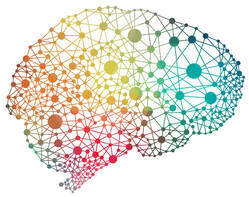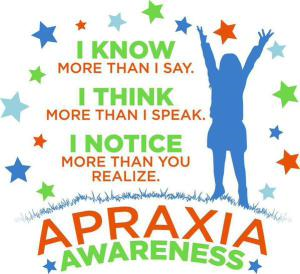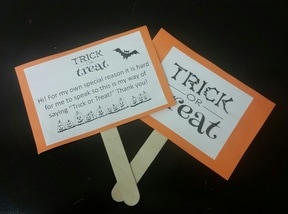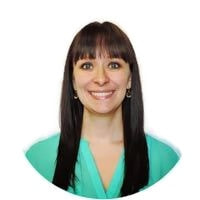
 Diversity. We all know the obvious forms of diversity; race, nationality, gender, socioeconomic status, general background, etc. But, lately I find myself discussing a lesser known type of diversity; neurodiversity. Neurodiversity is the concept that neurological differences (e.g., Dyspraxia, Dyslexia, Attention Deficit Hyperactivity Disorder, Dyscalculia, Autistic Spectrum Disorders, etc.) are respected as any other human variation. Therapy Center of Buda has always embraced diversity and we celebrate the diversity of our families. We don’t believe in “cures” and we don’t want neurodivergent people to look neutrotypical. In fact, suppressing the communicative efforts, including stims and non-spoken forms of communication have long been proven to be counterproductive to overall communicative and daily living success. Rather, listening to each individual and their wants, desires, requests, and rejections is a way to honor their communication styles.
Do you ever wonder what happens inside your mouth when you speak or swallow? While we all take for granted that we have the ability to speak (and swallow) A LOT of work happens behind the curtain. Our mouth (aka oral cavity) is where the sounds we hear are fine tuned using numerous muscles and other anatomy of the oral and nasal cavities. For kiddos sometimes these muscles and articulators simply do not want to cooperate which is usually why adults are unable to understand them or why they have difficulty efficiently chewing and swallowing their food. Speech-language pathologists evaluate the functioning of the mechanisms needed to produce intelligible (clear) speech sounds and ensure safe chewing/swallowing. They also are highly trained to provide treatment when these mechanisms are not efficient. Check out this video to see what our mouth looks like while we speak, sing, playing instruments, and swallow!
 Childhood Apraxia of Speech (CAS) is a motor speech disorder. CAS is a relatively uncommon disorder (1-2 children per 1,000= 0.1-0.2%) and one of the lesser known disorders treated by Speech-Language Pathologists. There are some identified causes of CAS (e.g., stroke, trauma, chromosomal abnormalities) but we are not truly sure of all of the causes. In a nutshell: The child knows what he/she wants to say and the brain sends the message to the mouth (lips, jaw, and tongue) for appropriate placement to produce sounds, but the mouth doesn't cooperate. Keep Reading for information on Symptoms, Testing, Diagnosis, Treatment, and Resources
By: Laura Smith
I was a practicing speech-language pathologist for five years before my daughter was born. I worked primarily at the elementary and middle-school levels. I took professional development workshops on childhood apraxia of speech (CAS) and treated it successfully in three kiddos from my caseload. Perhaps that’s why I was bewildered, angry and utterly devastated when I missed those very signs in my own child. I hadn’t yet worked in early intervention, so I missed what seem like obvious signs to me now that I specialize in the disorder. I urge all SLPs to learn more about CAS, because the disorder requires a specialized approach different from other commonly used treatments for speech and language delays. In addition, ASHA denotes that the qualified professional to diagnose CAS is an SLP with specialized knowledge in motor learning theory and skills with differential diagnosis in childhood motor speech disorder, not a neurologist or other medical practitioner. It’s important to know the signs, but also to refer your client to a qualified SLP for differential diagnosis if you suspect childhood apraxia of speech. Here are 10 early signs and symptoms of childhood apraxia of speech:
You can tap the below resources to learn more about childhood apraxia of speech.
Laura Smith, MA, CCC-SLP, is a school-based and private clinician in the Denver metro area specializing in childhood apraxia of speech. She’s CASANA-certified for advanced training and clinical expertise in Childhood Apraxia of Speech and often speaks at conferences and consults for school districts or other professionals. Original blog: http://blog.asha.org/2015/04/09/10-early-signs-and-symptoms-for-childhood-apraxia-of-speech/  Halloween is a really fun time…for most kiddos. But for those having difficulty with communicating, trick-or-treating can be very difficult task and so stressful that some will exclude themselves from enjoying such an activity. We truly believe that although we all may have differences these are simply that and we must find different ways to include all children that would like to participate. One of our therapists came up with this simple craft you can do at home WITH your child to help give him/her a voice to be included in trick-or-treating. Childhood Apraxia of Speech (CAS) is a motor speech disorder. CAS is a relatively uncommon disorder (1-2 children per 1,000= 0.1-0.2%) and one of the lesser known disorders treated by Speech-Language Pathologists. There are some identified causes of CAS (e.g., stroke, trauma, chromosomal abnormalities) but we are not truly sure of all of the causes.
 While playing with playdoh can give optimal time to address receptive language, expressive language, pragmatic language, sensory, fine motor, gross motor, and handwriting development not all kiddos are able to safely play with it. Sometimes kiddos eat the playdoh or they are gluten sensitivity. Well, we have the solution! Follow the recipe below for some EDIBLE GLUTEN FREE PLAYDOH! Edible Gluten Free Playdoh Recipe Ingredients: -Baby rice cereal -Vegetable oil -Cornstarch(or gluten-free cornflour if you are in the UK or Australia) -Unsweetened Applesauce (you can substitute water if you don't have applesauce) -Food coloring (optional) |
AuthorAmy Grant is a licensed Speech-Language Pathologist, Certified Autism Specialist and Clinic Director of Therapy Center of Buda. Family Corner Blog
Learn parenting tips, access credible resources on disabilities and find out how to bring therapy techniques home with you to make parenting a little bit easier. Legal Disclaimer Categories
All
SubscribeArchives
July 2024
|



 RSS Feed
RSS Feed
